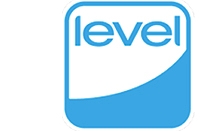
Responsible action
In 2016, the German market research company GfK conducted an international study in which they asked workers for their opinions about the most important tasks of companies in their role as employers. Environmental protection was one of the three most often mentioned.



Status quo
Ever more companies are responding to this wish. One example of that is the Green Office surveys conducted by Fraunhofer IAO. In 2009, 49% of the respondents said they considered environmental responsibility important; five years later, that figure had risen to 71%.
Diverse requirements
Companies that are striving to reach environmental and sustainability goals need to balance a whole range of aspects against one another, especially the following ones:
- CO2Emissions and use of resources
- Water and energy consumption
- Pollutant emissions
- Pollutant content of products
- Durability and recyclability of products
- Origin of materials
In addition, companies must fulfil requirements regarding the responsible acquisition of components, raw and auxiliary materials and consumables, as well as requirements related to their own employees’ working conditions.
Guidelines

Companies use seals to show their environmental friendliness and sustainability. However, most seals cover one or a few of the relevant aspects. Sometimes the seals compete with one another, e.g. regarding tests for harmful substances. Even for experts, it’s difficult to run a comparative assessment of various products. One possible remedy for this situation is the European LEVEL mark, which will be granted for the first time in the course of 2018. The basis of this certification process is the European sustainability standard for office and facility furniture, which was developed by the European Federation of Office Furniture (FEMB) in cooperation with international sustainability experts.
> more information at www.levelcertified.eu.

